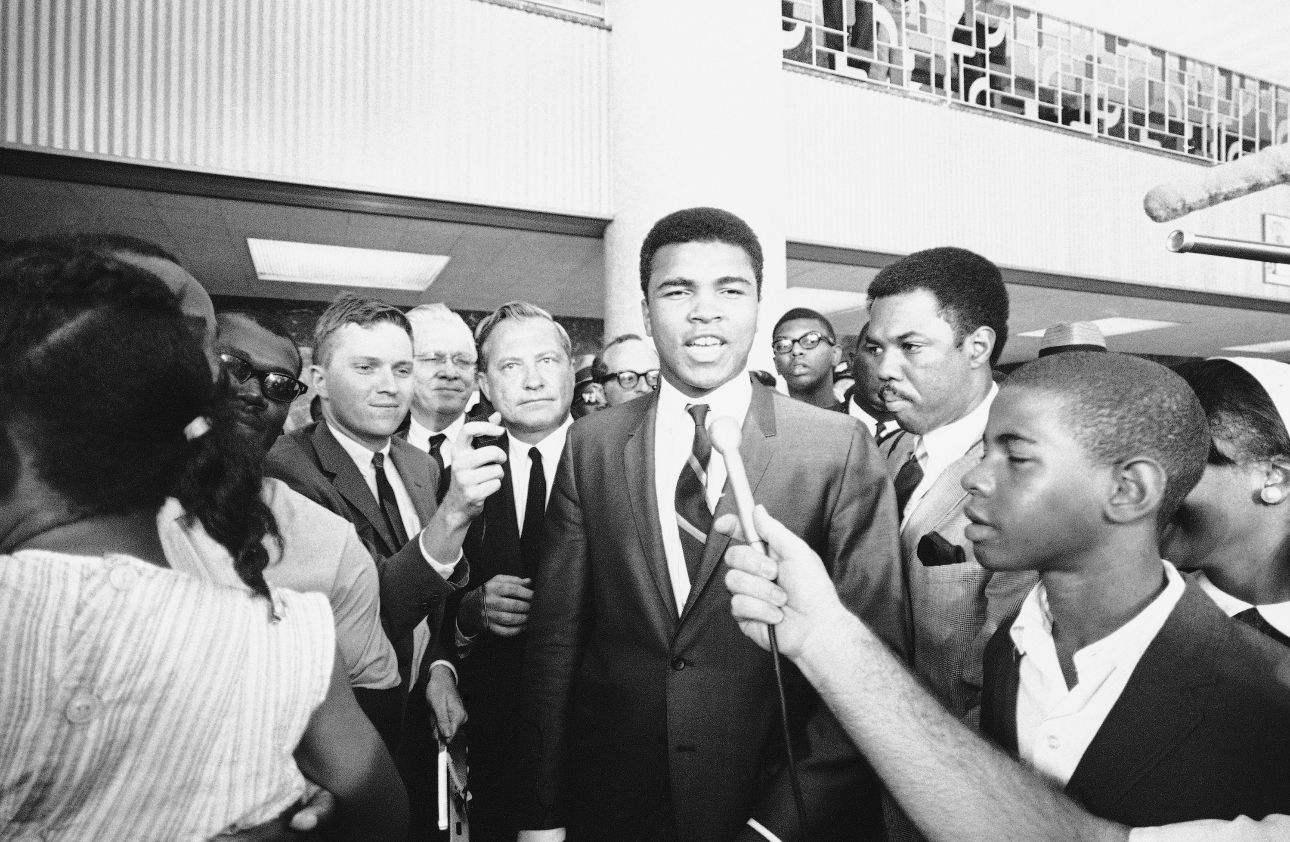The Fight Outside the Ring: Why Muhammad Ali Lost His Title

Muhammad Ali: The Greatest Who Shook Up the World
Early Life and Family Background
Muhammad Ali, born Cassius Marcellus Clay Jr. on January 17, 1942, in Louisville, Kentucky, rose from humble beginnings to become one of the most celebrated athletes and humanitarians in world history. His father, Cassius Clay Sr., was a sign and billboard painter who loved art and music, while his mother, Odessa Grady Clay, worked as a domestic worker and nurtured her son’s faith and confidence .
Ali’s ancestry traces to a remarkable family line combining African-American heritage with Irish and English roots. His great-grandfather, Abe Grady, emigrated from Ennis, County Clare, Ireland, to Kentucky in the 1850s, later marrying an African-American woman, establishing the Clay family’s multi-ethnic legacy .
He had one brother, Rahman Ali, also a boxer and lifelong companion in faith .
Rise to Stardom and Boxing Career
At age 12, after reporting the theft of his bicycle, young Cassius met police officer and boxing coach Joe Martin, who introduced him to the world of boxing. From those early days, Ali demonstrated unmatched athleticism and charisma. He won a gold medal in the 1960 Rome Olympics and four years later, at only 22, defeated Sonny Liston to become World Heavyweight Champion .
Soon after, he announced his conversion to Islam under the Nation of Islam, taking the name Muhammad Ali to signify spiritual rebirth and racial pride .
Stripping of His Title
In 1967, Ali refused U.S. military induction during the Vietnam War, citing religious and moral grounds as a Muslim conscientious objector. His statement—“I ain’t got no quarrel with them Viet Cong”—resonated globally .
For this act of conscience, he was:
• Stripped of his heavyweight title
• Banned from boxing for nearly four years, and
• Sentenced to five years in prison and fined $10,000 (though later overturned by the U.S. Supreme Court) .
Was It Right to Strip His Title?
Looking back through ethical and historical lenses, stripping Ali’s title was morally unjust but politically motivated. He neither violated boxing rules nor committed an act of violence. His stand was rooted in faith and civil rights. In 1971, the U.S. Supreme Court overturned his conviction, validating his right to religious freedom and making Ali a hero of conscience . The decision highlighted that Ali’s protest was an act of courage, not defiance.
Illness and Later Life
In 1984, Ali was diagnosed with Parkinson’s disease, a neurodegenerative disorder that affected his movement and speech . Neurologists later confirmed that his was idiopathic Parkinson’s disease, not just trauma-related from boxing .
Despite his illness, Ali’s optimism and faith remained unbroken. He became a global ambassador for peace and Parkinson’s awareness, co-founding the Muhammad Ali Parkinson Center and inspiring millions worldwide .
He died on June 3, 2016, at the age of 74.
Family and Legacy
Ali was married four times and was the father of nine children: Maryum, Rasheda, Jamillah, Muhammad Jr., Khaliah, Miya, Hana, Laila, and Asaad Amin .
Today, his children continue his humanitarian and social legacies:
• Maryum Ali works in social services and youth mentoring.
• Rasheda Ali is an advocate for Parkinson’s awareness.
• Laila Ali became a world champion boxer and entrepreneur.
• Hana Ali preserves her father’s legacy through writing and media.
• Asaad Amin, his adopted son, is a sports coach and motivational figure .
Ali’s wife, Yolanda “Lonnie” Ali, continues philanthropic work through the Muhammad Ali Center in Louisville, serving as a beacon of hope and education for youth worldwide .
Personality and Nicknames
Known for his witty rhymes, fearless confidence, and poetic boasts, Ali redefined sportsmanship. His quotes such as “Float like a butterfly, sting like a bee” and “I am the greatest!” reflected his unparalleled charisma and self-belief .
Off the ring, he was gentle, humorous, faith-filled, and deeply compassionate—earning him admiration across generations.
Films and Books About Muhammad Ali
Films:
1. Ali the Fighter (1971)
2. The Greatest (1977) – starring Ali himself
3. When We Were Kings (1996)
4. Ali: An American Hero (2000)
5. Ali (2001) – starring Will Smith
6. Facing Ali (2009)
7. The Trials of Muhammad Ali (2014)
8. I Am Ali (2014) .
Books:
1. Muhammad Ali: His Life and Times – Thomas Hauser
2. King of the World: Muhammad Ali and the Rise of an American Hero – David Remnick
3. The Soul of a Butterfly: Reflections on Life’s Journey – by Muhammad Ali & Hana Ali
4. Ali: A Life – Jonathan Eig .
Conclusion
Muhammad Ali was more than a boxer; he was a fighter for faith, justice, and equality. His defiance against war, his battle with illness, and his compassion toward humanity have cemented him as “The Greatest” — a title no one could truly strip away.
Ali’s spirit continues to live on through his family, his foundation, and the millions who draw strength from his life story—a timeless reminder that conviction and courage can outlast any championship belt.





